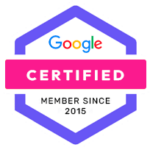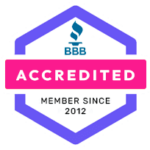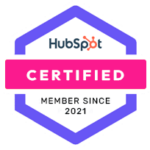Advanced SEO Strategies That Work

Businesses constantly battle for visibility and attention. Amidst this struggle, one strategy stands out as a secret weapon for achieving top rankings and dominating search results: Advanced SEO Strategies. In this article, we’ll discuss the sophisticated SEO techniques that can elevate your brand’s online presence and drive significant traffic to your site.
SEO Strategy Development
Understanding Your Audience and Keyword Research
To develop an effective SEO strategy, start by thoroughly understanding your target audience. Identify their needs, preferences, and online behavior. This knowledge will inform your keyword research, allowing you to pinpoint the terms and phrases your audience uses when searching for products or services like yours. Use tools like Google Keyword Planner, SEMrush, and Ahrefs to discover high-traffic, low-competition keywords that can give you a competitive edge.
On-Page Optimization for Maximum Impact
On-page optimization is crucial for ensuring your site ranks well in search results. Focus on optimizing title tags, meta descriptions, headers, and URL structures. Incorporate your target keywords naturally and strategically within your content. Additionally, ensure your content is well-organized, easy to read, and provides value to your audience. Implementing these practices will help search engines understand the relevance and quality of your pages.
Competitor Conquest
Analyze your top competitors’ SEO strategies to identify their strengths and weaknesses. Tools like Ahrefs and SEMrush can help you uncover valuable insights into their keyword rankings, backlink profiles, and content strategies. By understanding what works for your competitors, you can identify opportunities to outperform them and capture a larger share of search traffic.
Content Marketing Strategies
Creating Valuable, Engaging Content
High-quality content is the cornerstone of any successful SEO strategy. Focus on creating valuable, engaging content that addresses your audience’s needs and interests. Use various formats, such as blog posts, videos, infographics, and podcasts, to keep your audience engaged and coming back for more.
Keyword Integration Without Compromising Quality
Effective keyword integration is essential for SEO success, but it should never compromise the quality of your content. Aim to integrate keywords naturally and contextually within your content. Avoid keyword stuffing, which can harm your rankings and diminish user experience. Instead, focus on creating informative and compelling content that seamlessly incorporates your target keywords.
The Power of Topic Clusters
Topic clusters are an advanced SEO technique that can establish your site as a trusted authority in your niche. A topic cluster consists of a pillar page covering a broad topic and multiple related content pieces (cluster content) that delve deeper into subtopics. Interlinking these pages helps search engines understand the relationship between them, boosting your site’s relevance and authority.
Keywords That Convert, Not Confuse
It’s essential to use keywords that drive conversions, not just traffic. Focus on long-tail keywords and phrases with clear search intent. These keywords often have lower search volumes but higher conversion rates, as they attract users closer to making a purchase decision. Integrating these keywords effectively can enhance user experience and increase your site’s conversion rates.
Technical SEO
Site Structure, Mobile-Friendliness, and Page Speed
A well-structured site that’s mobile-friendly and fast-loading is critical for SEO success. Ensure your site has a clear, logical structure that makes it easy for users and search engines to navigate. Optimize for mobile devices, as mobile traffic continues to grow. Additionally, improve your page speed by compressing images, minimizing code, and leveraging browser caching.
Importance of Meta Tags and Structured Data
Meta tags and structured data play a crucial role in helping search engines understand your content. Optimize your meta titles and descriptions to include target keywords and accurately describe your content. Implement structured data (schema markup) to provide additional context to search engines, enhancing your chances of appearing in rich snippets and other SERP features.
Conducting Regular Technical SEO Audits
Regular technical SEO audits are essential for identifying and fixing crawling, indexing, and user experience issues. Use tools like Screaming Frog, Google Search Console, and Ahrefs to conduct comprehensive audits. Address any issues promptly to ensure your site remains optimized and accessible to both users and search engines.
Off-Page SEO Tactics
Building a Strong Backlink Profile
A robust backlink profile is a key factor in achieving high search rankings. Focus on acquiring high-quality, relevant backlinks from authoritative sites. Engage in link-building strategies such as guest blogging, creating shareable content, and reaching out to influencers in your niche.
Social Media as an SEO Tool
Social media platforms can significantly boost your SEO efforts. Share your content on social media to increase visibility and drive traffic to your site. Engage with your audience, encourage social sharing, and build a strong online presence that supports your SEO goals.
Effective Guest Blogging Strategies
Guest blogging remains a powerful off-page SEO tactic, but it’s essential to go beyond traditional guest posts. Create skyscraper content—comprehensive, high-quality pieces that outperform existing content on a given topic. Participate in expert roundups to showcase your expertise and gain valuable backlinks.
Public Relations and Influencer Marketing
Public relations and influencer marketing can create brand awareness and earn valuable backlinks organically. Collaborate with influencers and industry experts to reach a broader audience and build credibility. Publish press releases and leverage media coverage to enhance your online presence.
Measuring SEO Success
Tools and Metrics for Tracking SEO Performance
Tracking your SEO performance is crucial for understanding the effectiveness of your strategies. Use tools like Google Analytics, SEMrush, and Ahrefs to monitor key performance indicators (KPIs) such as organic traffic, conversions, bounce rate, and time on site. These metrics provide a comprehensive view of your SEO success.
Adjusting Strategies Based on Analytics
Regularly review your analytics data to identify areas for improvement. Adjust your SEO strategies based on insights gained from your analytics. Continuously refine your approach to ensure your efforts align with your business goals and deliver optimal results.
SEO is an evolving practice that requires constant learning and adaptation. Stay updated with the latest trends and algorithm changes to maintain your competitive edge. Embrace a proactive approach to SEO, and be prepared to adjust your strategies as needed to achieve long-term success.
Ready to amplify your brand’s online presence? Contact Heart Core Growth for an SEO consultation and discover how advanced SEO strategies can drive your business to new heights.









